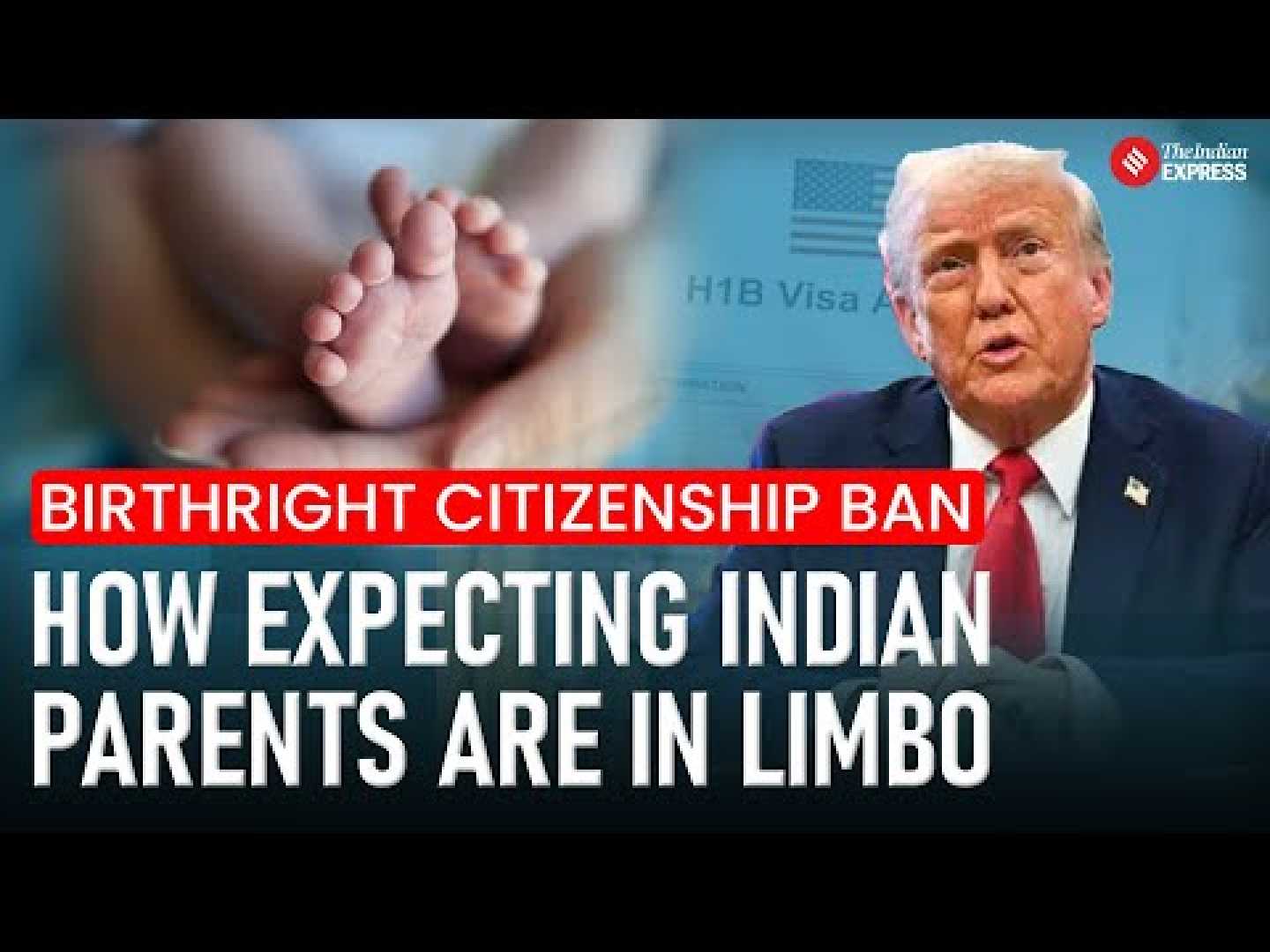News
Uncertain Future for New Parents Amid Citizenship Rule Changes

San Francisco, California — Neha Satpute and Akshay Pise, an Indian couple working as engineers in the U.S., are approaching the birth of their first child amid uncertainty over citizenship rules. Their son is due on February 26, and they have planned his arrival expecting him to be born an American citizen. However, recent changes announced by President Donald Trump threaten to alter this expectation.
The proposed rule would deny automatic U.S. citizenship to children born to temporary foreign workers, impacting many immigrant families. The policy shift has led to widespread anxiety among parents in similar situations, including Neha and Akshay, as they navigate the complexities of a changing legal landscape.
“This impacts us directly,” said Akshay. “If the order takes effect, we don’t know what comes next — it’s uncharted territory.” He and Neha are puzzled by the future nationality of their child, as current U.S. law does not provide for granting non-immigrant status to individuals born in the country to temporary visa holders.
Despite the uncertainty, they are focused on the health of the baby and have consulted with their doctor about the possibility of an early delivery. “I want the natural process to take its course,” Neha stated, while Akshay emphasized, “My priority is a safe delivery and my wife’s health. Citizenship comes second.”
The situation has drawn attention from legal experts as well. Cyrus Mehta, a New York-based immigration attorney, highlighted the potential legal issues that could arise from the new policy. “U.S. law has no provision for granting non-immigrant status to a person born here,” he explained.
In a move aimed at addressing concerns over the well-being of expecting parents, Dr. Satheesh Kathula, president of the American Association of Physicians of Indian Origin, has reached out to obstetricians across the country. He indicated that while some families had considered early C-sections to secure citizenship for their children, most physicians are adhering to medical ethics and discouraging unnecessary procedures.
Current immigration statistics underscore the high stakes; Indians make up a significant portion of temporary visa holders in the U.S. and are often among the last to receive green cards, according to the Cato Institute. In fact, as of 2023, Indians composed 62% of the employment-based backlog of applicants waiting for green cards, which amounts to approximately 1.1 million individuals.
The challenges are not just legal but also personal, as families worry about the implications of increased bureaucracy on their children’s lives. Akshay shared, “We’ve been here for more than 10 years. It’s very important for me to have citizenship as I see my parents getting older. Traveling becomes tricky with visa requirements, and now I have to think about my baby.”
The fears extend beyond parents on H-1B visas; undocumented migrants are also affected. Pew Research estimates that there are around 725,000 undocumented Indian immigrants in the U.S., and changes to citizenship laws could exacerbate their vulnerability and eliminate a pathway to legal residency for their U.S.-born children.
In a distressing climate, expecting parents such as Priyanshi Jajoo, who is due in April, voiced their worries about the potential complexities in securing citizenship and passports for their child. “There’s no clear information available, and it’s stressful trying to navigate this while preparing for a baby,” she expressed.
As Neha and Akshay prepare for their new arrival, the mounting uncertainty surrounding U.S. citizenship policy creates additional stress. “Pregnancy is stressful enough, but we thought after a decade here it would get easier — then this happens on top of everything,” Neha said, reflecting the anxiety felt by many immigrant families.
Akshay echoing the sentiment of countless other immigrants concluded, “As legal, tax-paying immigrants, our baby deserves U.S. citizenship — it’s been the law, right?”












